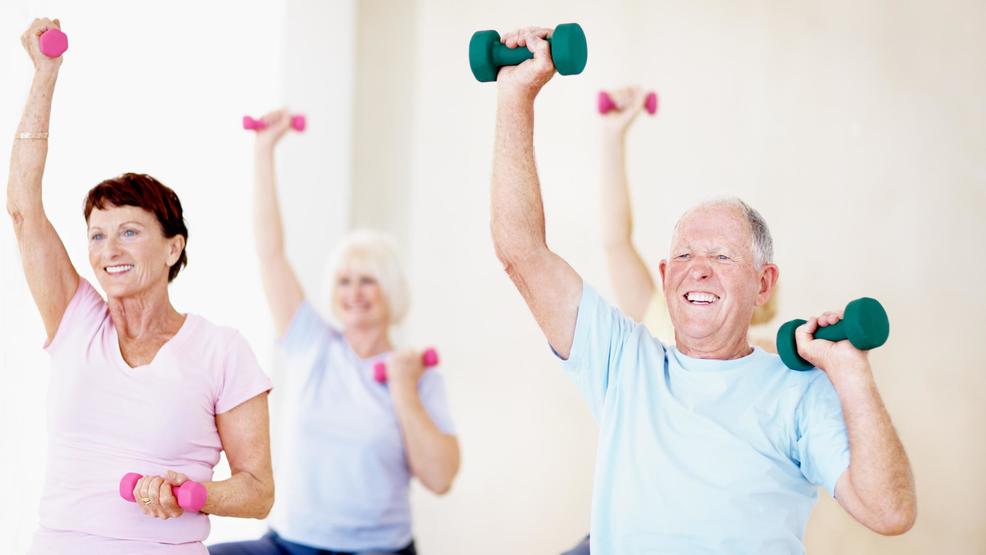
Beyond keeping in shape, exercise can reverse the effects of aging on your body and fight brain decline.
Exercise has long been touted as an essential aspect of a healthy lifestyle, so it will come as no surprise to hear that if you don’t exercise, you should start.
What may surprise you, however, is the astounding effects exercise can have during your golden years. Beyond keeping in shape, exercise can reverse the effects of aging on your body and fight brain decline.
Sound too good to be true? Fortunately, research backs up these claims.
Reverse physical aging
After the first few decades of your life, you likely noticed your energy levels were sapped earlier in the day than they used to be and that it was harder to keep healthy. Generally, these changes are only exacerbated with time.
“Even the most athletically fit cannot escape these changes,” the National Institute on Aging said. “Take marathon runners, for example. An NIA-funded study found that their record times increased with age — aging literally slowed down the runners.”
At its most basic level, aging changes your cells. For example, lung tissue loses elasticity and rib cage muscles shrink, so the amount of air you inhale in a breath decreases, according to the NIA. Your gut produces fewer digestive enzymes, making it difficult to absorb nutrients. Your heart’s blood vessels accumulate fatty deposits.
Enough of the bad news. The good news is you can fight the breakdown.
For example, researchers found that high-intensity interval training can slow the decline of aging. Also called HIIT, this type of training involves doing a workout that goes back and forth between intense exercise and recovery periods.
Study participants did both HIIT workouts and resistance training — working out with weights — for 12 weeks, and researchers said HIIT was the workout that made the biggest difference to aerobic capacity and cells in the muscles.
Before being scared away by the words “high intensity,” consider all the workouts you can do. For example, one workout designed for seniors involves running and walking on a treadmill in this pattern:
- Work interval: 20-second sprint
- Rest interval: 90-second walk
- Repeat 4-6 times
- Cool down: 5-minute walk
If running isn’t your thing, incorporate the same pattern of exercise and rest in any activity you like such as swimming, cycling, weightlifting and so on.
Fight brain decline
Perhaps the idea that exercise can reverse aging’s physical effects makes sense, but understanding how it strengthens brain function is a little harder to grasp. Well, here’s the scoop.
Multiple studies have found that physical activity, particularly aerobic exercise, enhances cognitive function. That means exercise helps with activities in the brain including memory, attention span, language skills, logic and reasoning. These studies show exercise has “substantial benefits” according to an article published in Psychological Science in the Public Interest journal.
Exercise isn’t the only way to fight cognitive decline. Socializing and cognitive activities like doing puzzles or learning a language can also help. Still, “physical activity has the most support as protective against the deleterious effects of age on health and cognition” according to an article in the Journal of Aging Research.
These deleterious, or harmful, effects include more than just occasional forgetfulness. Physical activity can help delay the onset of dementia and Alzheimer’s disease in people who are 65 or older, according to research in the Annals of Internal Medicine journal.
All 1,740 participants were cognitively intact at the beginning of the study. After six years, the people who exercised at least three times per week had a lower rate of dementia than those who exercised less.
“These results suggest that regular exercise is associated with a delay in onset of dementia and Alzheimer disease, further supporting its value for elderly persons,” the researchers write.
Get started
As research shows, there is every reason you should exercise, even if you never have before. Don’t let common myths about exercise — such as exercise not being safe — get in your way. Of course, before you start any exercise program, you should always consult with your physician.
ComForCare of Palm Beach Gardens is the premier provider of private-duty, non-medical home health care allowing people to age comfortably, safely and happily in place. Services include meal preparation, light housekeeping, grooming and hygiene help, transportation assistance, medication reminders and more. Caregivers can even go on walks with those they care for or help them safely complete approved exercise routines. To learn more, visit comforcare.com/palmbeach.
[“Source-cbs12.”]
